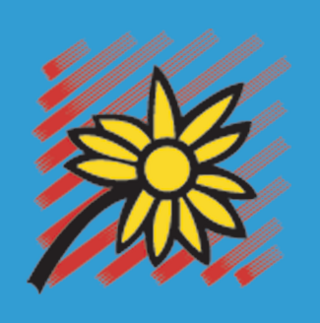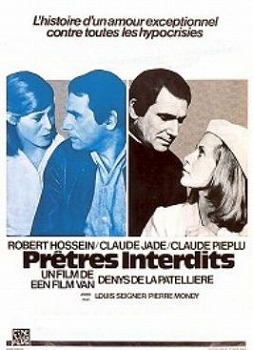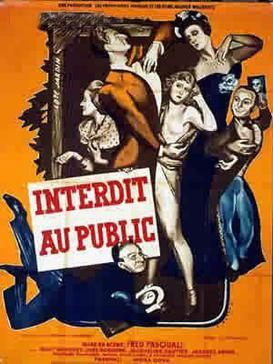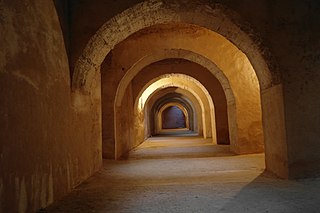Related Research Articles

Hassan II was King of Morocco from 1961 until his death in 1999. A member of the Alawi dynasty, he was the eldest son of Sultan Mohammed V, and his second wife, Lalla Abla bint Tahar.

Sevran is a commune in the French department of Seine-Saint-Denis, northeastern suburbs of Paris, Île-de-France. It is located 16.2 km (10.1 mi) from the center of Paris.

René Clément was a French film director and screenwriter. He is known for directing the films The Battle of the Rails (1946), Forbidden Games (1952), Gervaise (1956), Purple Noon (1960), and Is Paris Burning (1966). He received numerous accolades including five prizes at the Cannes Film Festival and the Honorary César in 1984.

Forbidden Games is a 1952 French war drama film directed by René Clément and based on François Boyer's novel Les Jeux Interdits.
France has a long history of governmental censorship, particularly in the 16th to 19th centuries, but today freedom of press is guaranteed by the French Constitution and instances of governmental censorship are limited.

The Equity and Reconciliation Commission was a Moroccan truth and reconciliation commission active under a two-year mandate from 2004 to 2005 focusing on human rights abuses committed during the Years of Lead mainly under King Hassan II's rule.
The Years of Lead was a period of the rule of King Hassan II of Morocco, from roughly the 1960s through the 1980s, marked by state violence and repression against political dissidents and democracy activists.

Forbidden Priests is a 1973 French drama romance war film directed by Denys de La Patellière and starring Robert Hossein and Claude Jade.

Éliette Abécassis is a French writer of Moroccan-Jewish descent. She is a professor of philosophy at the University of Caen Normandy.

Al Maghribia channel is a part of the state-owned SNRT Group along with Al Aoula, Arryadia, Athaqafia, Assadissa, Aflam TV, Tamazight TV and Laayoune TV. The channel was launched on 18 November 2004 by Morocco's Broadcasting and Television National Company.
The main religion in Morocco is Sunni Islam, which is also the state religion of the country. Officially, 99% of the population are Muslim, and virtually all of those are Sunni. The second-largest religion in the country is Christianity, but most Christians in Morocco are foreigners. There is a community of the Baháʼí Faith. Only a fraction of the former number of Maghrebi Jews have remained in the country, many having moved to Israel.

Mehdi Ben Barka was a Moroccan nationalist, Arab socialist, politician, revolutionary, anti-imperialist, head of the left-wing National Union of Popular Forces (UNFP) and secretary of the Tricontinental Conference. An opponent of French Imperialism and King Hassan II, he was "disappeared" in Paris in 1965.

The Forbidden Room is a 1977 thriller film directed by Dino Risi. It is based on the novel Un'anima persa by Giovanni Arpino. The film was co-production between Italy and France by Dean Film and Les Productions Fox Europa.
Egoz was a ship that carried Jewish emigrants from Morocco to Israel, at a time when the immigration of Moroccan Jews to Israel was illegal under Moroccan law. The ship operated undercover, and gained fame after sinking on 10 January 1961, which resulted in the loss of 46 lives, 44 of them immigrants.

The migration of Moroccan Jews to Israel has been made all over the centuries. Moroccan Jews in Israel have been the founders of many pioneer neighborhoods in Jerusalem, Tel Aviv, Haifa, Tiberias and others.

The Duke De Richleau is a fictional character created by Dennis Wheatley who appeared in 11 novels published between 1933 and 1970.
Moroccan Jews in Israel are immigrants and descendants of the immigrants of the Moroccan Jewish communities who now reside within the state of Israel. The 2019 Israeli census counts 472,800 Jews born in Morocco or with a Moroccan-born father, although according to the World Federation of Moroccan Jewry, nearly one million Israeli Jews are Moroccan or of Moroccan descent, making them the second-largest community in the country.

Leïla Kilani is a Moroccan director, screenwriter, and producer. Kilani has worked on films such as Nos Lieux Interdits (2008), Zad Moultaka (2003), and directed the feature film On the Edge (2011). Kilani was born in the city of Casablanca in the northern part of Africa.

Forbidden to the Public is a 1949 French comedy film directed by Alfred Pasquali and starring Jacques Erwin, Mary Marquet and Jacqueline Gauthier.

Qara Prison or Habs Qara, also known as the Prison of the Christian Slaves, is a series of underground vaulted chambers built in the early 18th century in Meknes, Morocco, by order of Sultan Moulay Ismail. Although popularly described as an underground prison that could host thousands of inmates, mostly Europeans captured at sea, most scholars agree that its function was to serve as a vast storage space for the royal complex of the Kasbah of Moulay Ismail.
References
- African Film Festival of Cordoba-FCAT (license CC BY-SA-3.0)
- ↑ Mandelbaum, Jacques (29 September 2009). ""Nos lieux interdits" : enquête autour de disparus sous la dictature d'Hassan II". Le Monde (in French). Retrieved 12 March 2012.